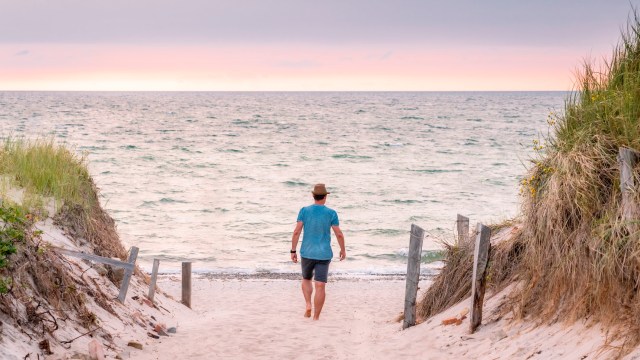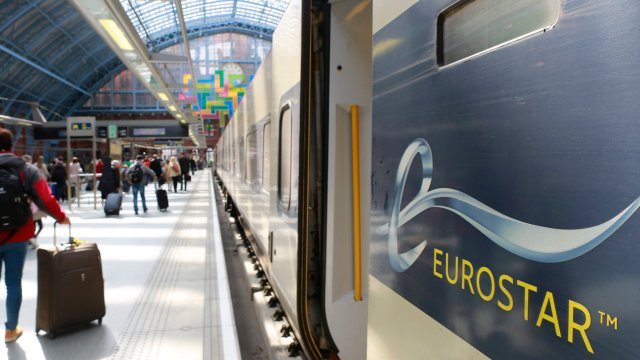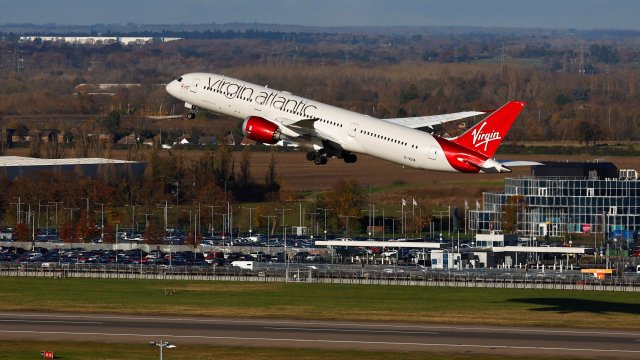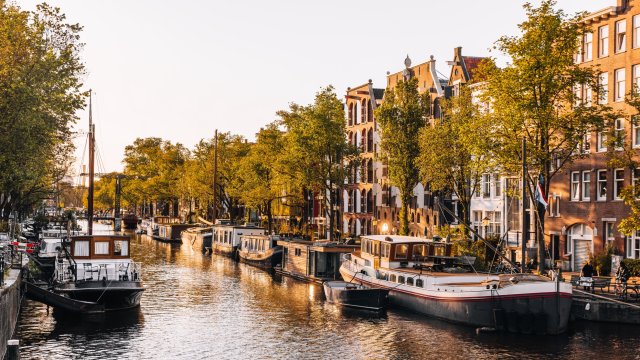1. Follow the locals… to Germany
Given that Germans like to holiday almost as much as Britons, it’s worth paying attention to where they go. Yes, they like Italy, Spain and Turkey almost as much as we do. But a recent WTM Global Travel Report revealed Germany to be Europe’s largest domestic leisure travel market.
Favoured destinations include Bavaria, the Baltic coast of Mecklenburg Pommerania, and North Sea coastlines of Schleswig Holstein (British magnets are Bavaria, Berlin and the Black Forest).
What’s more, Germany’s popular €49 monthly rail pass allows unlimited travel on regional lines (not high-speed) around the country, making it easier – and cheaper – to explore.
Given that only around 3.5 million British holidaymakers venture to Germany – less than a quarter of the volume that goes to Spain, though likely to increase considerably across German cities next summer for the Uefa Euro 2024 tournament – tap into this under-the-radar holiday destination before the secret’s out. germany.travel
2. Travel overland
Germany’s €49 Deutschland Ticket was relaunched this year, allowing unlimited travel over the course of a month on all types of public transport including local (but not Flix fast- and long-distance) trains and buses. The subscription is cancelled at the end of the month, before which time you could be zipping out seeing far more of the country than you might have previously considered.
Several more European countries have followed suit with their own version: Portugal, Hungary and from next summer, France. Look out, too, for regional promotions via SNCF – Hauts de France ran a €1 offer this summer, while Brittany offered 50 per cent off many of its fares.
3. Fly less
According to Flight Free UK – a campaign that has collected thousands of flight-free-year pledges since its launch in 2019 – a return flight from London to Los Angeles generates more carbon emissions than eating meat for a whole year (2.28 tons compared to 2.06 tons).
That’s not to say you should hop aboard a container ship to cross the Atlantic. However, swapping domestic flights for trains could cut your carbon footprint considerably – by almost a quarter on the journey from London to Edinburgh according to ecopassenger.org.
4. Stay out of the heat
According to Nasa scientists, this summer was earth’s hottest since global records began in 1880. Temperatures were as high as 43°C in Athens, 46°C on the Italian islands of Sicily and Sardinia and 49°C in north-western Turkey. Whether we see a similar picture next year remains to be seen, but you’ll be less likely to sizzle in northern Europe, where temperatures peaked in the low 30°Cs this summer.
In Iceland, you can explore under the midnight sun, while in Denmark and Sweden you’ll find miles of dune-backed, pale sand (and crowd-free) beaches either side of Oresund. Aim for the second half of August once local schools have returned for the sweetest spot.
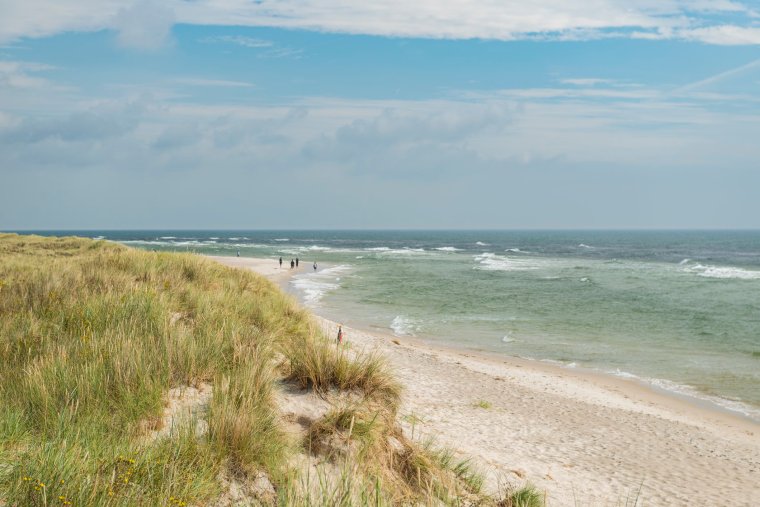
5. Go against the flow
Holidays are firmly back in Europe, where tourist numbers have exceeded pre-pandemic levels in Greece, Portugal and Turkey. That doesn’t mean you’ll be battling crowds wherever you go – aim for less obvious destinations, for example, the interior of these beach-drawing favourites. You could strike east to see the colossal stone heads atop Mount Nemrut in Turkey’s Taurus range, or the vineyards of Rapsani near Mount Olympus in Greece. Portugal’s Parque Nacaional da Peneda-Gerês is a lush landscape of walking trails, waterfalls, wild ponies and wolves.
Or you could go really off-piste. Squeezed between Switzerland and Austria, little Liechtenstein (the world’s sixth smallest country) receives less than 80,000 tourists per year but is packed with Alpine castles, a 75-mile hiking trail, Rhine river cruises and skiing.

6. Join a group trip
Whether it is a walking holiday in the Yorkshire Dales or a month-long tour of Asia, travellers who don’t want to go alone need not rely on a willing family member, partner or friend to take their dream trip. There are organised group holidays to suit most budgets, tastes and ages. Travelling this way offers confidence when visiting unfamiliar destinations, the chance to create new connections and it helps solo travellers avoid the single tax. When booking a traditional package, supplements saw single holidaymakers pay almost half as much more than someone travelling as part of a pair, according to research by the consumer association, Which?.
7. Go slow
Britons are taking shorter summer breaks, according to research from the Advantage Travel Partnership, the UK’s largest network of independent travel agents. The average length of a booking was 7.6 nights in 2023 compared to around 10 nights in 2019. Shaving a few days off your holiday could prevent you from feeling the full benefits. According to a study by University of Tampere in Finland, it is not until day eight of a holiday that we fully shake of the stress of responsibilities back home.
8. Save money
The cost of living continues to bite and is impacting how we travel, from driving the trend for all-inclusive holidays to opening the lens to focus on cost-effective destinations.
Countries in Europe where the cost of living is more than a third cheaper than the UK include Montenegro, Romania, Georgia, Albania, North Macedonia and Poland, according to numbeo.com/cost-of-living. Swap the glittering shores of the Italian lakes for North Macedonia’s mighty Lake Ohrid, or the French Riveria for Poland’s equivalent, strung between Gdansk, Sopot and Gydnia. In Romania, the Carpathian Mountains are a wonderland of ancient forests roamed by lynx, wolves and brown bears.
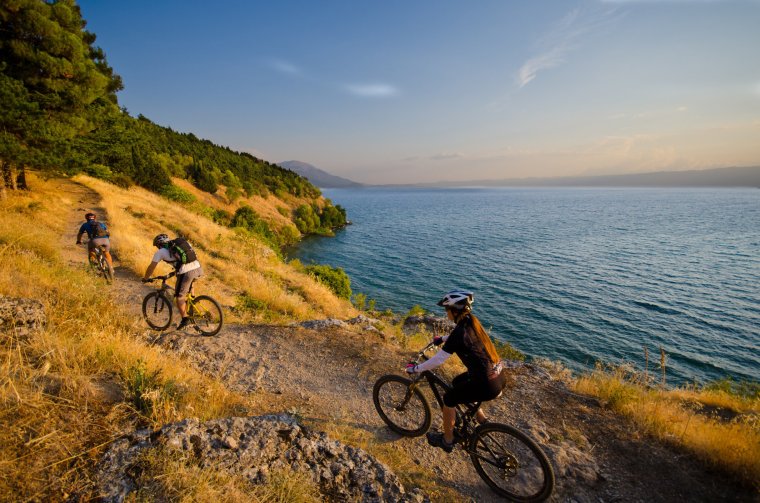
9. Get out of your comfort zone
While a tried-and-tested holiday can eliminate the vagaries of going away, taking the plunge can bring big rewards. Abta recently revealed “holiday neophiles” to be a 2024 trend, with more of us going against the familiar and looking for new destinations.
This might mean swapping a week by the beach in Cornwall or the Spanish costas for a string of European city breaks linked by train; or travelling up into the Alps in summer. You might also look to less obvious destinations such as the forests of the Flemish Ardennes (try Slow Cabins), Cumbria’s coastline (look out for the Deep Time art project), or skiing in southern Georgia’s Trialeti range (try the stylish Rooms Kokhta). Or how about going it alone? Saga, which caters to travellers aged 50 and above recently found that almost a quarter of its customers plan to travel solo next year.
10. Revisit your childhood
That said, there is reassurance in the familiar. This is borne out by the success of Hollywood sequels, prequels and reboots. Act out your own biopic with trip to the seaside resort, countryside escape or European beach that you visited as a child. Much like characters from a romcom or the Marvel universe, it may have changed in the intervening years – but it will be sure to spark memories and, if you take them along, perhaps help you to reconnect with a parent or sibling.
11. Spend time with a loved one
We tend to leave behind certain types of holidays through the years – boozy breaks with friends are consigned our late teens and early twenties. Couples who have children stop booking romantic escapes. We begin to take it for granted that a partner or spouse will be our travel companion, rather than our oldest friend. Yet research shows that those with strong social relationships are likely to live longer, healthier lives. Investing quality time in those voluntary connections could offer long-term benefits as well as short-term happiness. That could mean a night away at a hotel or B&B, a weekend in the country, or something more extravagant.
12. Dodge the taxes
The world’s “must visit” destinations are popular for a reason, including Venice’s lagoon, Amsterdam’s historic Canal Ring and Iceland’s geysers, glaciers and geothermal pools.
Yet, for every celebrated site there are several more than offer a similar – and usually equally memorable – experience without the busy crowds. Those planning a peak season holiday might skip Venice’s soon-to-be-implemented €5 daily visitor fee and try the Portuguese canal city of Aveiro with its gondola-style moliceiro boats, swap Amsterdam (which will have Europe’s highest tourist tax next year, at 12.5 per cent of the overnight rate) for Utrecht or explore the Himalaya in Arunachal Pradesh, India where a two-week tourist permit costs R500 (£5) compared to Bhutan’s daily fee of $100 (£80).

13. Find out where your money goes
Tourism can be a force for positive change, but less so when there is economic leakage. This can be as much as 80 per cent of the money you spend on a holiday – meaning that just 20 per cent stays in the destinations and communities you visit and they don’t benefit.
Booking with a responsible travel company will help to avoid this. B Corps are a good place to start (travelbybcorp.com). These organisations must meet high standards of social and environmental performance, transparency and accountability to become certified. But if they don’t cover where you want to go, ask the company you are booking with how much of the money you will spend goes back to the destination, and how it will be distributed.
14. Don’t rush to book
Drip pricing is under scrutiny. This practise sees airlines, accommodation providers and rail operators advertise a bare bones service at an appealing price, then charge for extras that many customers would consider vital – such as being seated with their children on a flight or access to fast Wi-Fi in a hotel room. The UK Government is set to propose new powers to tackle hidden fees, but, for now, it can be tricky to work out the cheapest option when booking a holiday. Spend time shopping around. The basic airline fare might work out cheaper if you go on to add the extras you need rather than selecting a higher fare with a range of extras included – or perhaps the full-service airline that initially looked more expensive will be cheaper overall once you’ve added all the extras to a no-frills flight. Make notes, take your time, and don’t feel pressured to add what you don’t want or need.
15. Be financially savvy
Avoid wasting money: don’t buy currency at the airport or rack up foreign transaction fees on your card. Some banks offer a one-off charge to use your card for a week, fee-free (Lloyds’ Travel Smart is £7, for example); others offer travel credit cards (Halifax Clarity) or debit cards (Monzo, Starling or Currensea) that are also fee-free. You can also sign-up for a pre-paid debit card such as Revolut, to help manage your spending abroad.
For cash, compare rates on third-party sites and shop around – you can often have the currency delivered to your home in advance of travel, for a fee.
And rather than racking up expensive roaming charges on your phone, consider buying a cheap SIM card locally, or downloading a digital eSIM (some smartphone models come with them) to toggle between your existing provider and a local network abroad.
16. Talk to people
Social media sites such as Instagram and TikTok can lure crowds to a particular bakery, viewpoint or food market. Yet beyond such tourist traps there may be equally tasty pastries, striking sites and attractions, minus the smartphone-wielding tourists.
The local tourism board or a physical guidebook remain reliable starting points. They often list free walking tours on which you can choose to pay what you wish, offering income to residents, point you towards interesting museums and offer insiders’ tips for the best time to visit a certain gallery (such as during quiet, or free, hours).
17. Do some homework
Learning a few key phrases can go a long way in a new destination (even if it’s “I’m sorry, I don’t understand” or “do you speak English”) but understanding some of the local history as well as social conventions will help ensure you don’t cause offence, whether it’s how you dress, how you address people, taking a photo or mentioning an unmentionable. Respect is key.
18. Learn the language
Idioms, tone and humour are all lost on an online translation tool. Many UK universities offer free beginners’ courses in several languages, such as French, Italian, Spanish and Mandarin. Alternatively, language learning apps can be a quick-win way to refresh your memory or grasp the basics.
19. Put down your phone
(Once you’ve read up on what you need to know.) There’s a temptation to capture every moment on your camera, but will you remember what you saw at that moment or just how it looked on screen? Then there’s the reflex to share it on social media then spend time replying to comments or reactions from friends.
One third of UK phone users spend three to four hours a day on their mobile phones and less than four per cent use their phone for less than an hour per day, according to research by USwitch. This will quickly eat into precious holiday time. Plan for less screen time, whether by deleting email and social media apps from your phone or leaving it in your accommodation safe while you’re there.

20. Ensure you’re insured
Natural disasters, air traffic control meltdowns or a health issue are among the many ways in which your trip could be disrupted ahead of travel. A quarter of UK travellers do not take out travel insurance at all, according to a poll carried out on behalf of the Post Office. Plus, research by comparison website Go Compare found that 28 per cent of Britons buy their insurance just hours before they’re due to depart. Doing it as soon as you’ve booked your travel means you’re covered from that moment until the policy ends.
21. Look to the heavens
This winter is expected to bring some of the best Northern Lights displays in decades as the sun reaches the peak – known as the “solar maximum” – of an 11-year cycle. Whether searching for the aurora or stargazing, interest in watching the night sky has grown with the help of smartphone cameras that allow users to quickly take and share photos, and apps that identify the constellations.
Why not plan a holiday in one of the UK’s seven dark sky reserves or a DarkSky-Certified Lodging – the first of these, a tented camp in Utah in the US starts at around $279 (£220) a night, but more are set to follow.

22. Return to nature
City breaks have become UK travellers’ favourite type of holiday, according to a recent survey from Abta. But those seeking a boost in wellbeing might choose mountains over skyscrapers. Research from the ONS shows that fewer Britons are spending time in nature compared to 2020, despite its proven health benefits.
Among the reasons people are forgoing the outdoors is poor weather. Biting temperatures and drizzle are less likely in the Algarve’s nature reserves or the Canary Islands’ National Parks than in most UK suburbs. And, for those taking a UK break, a quick look at Met Office records will reveal that the South Downs and the Isle of Wight clock up more annual sunshine hours than many parts of the country.
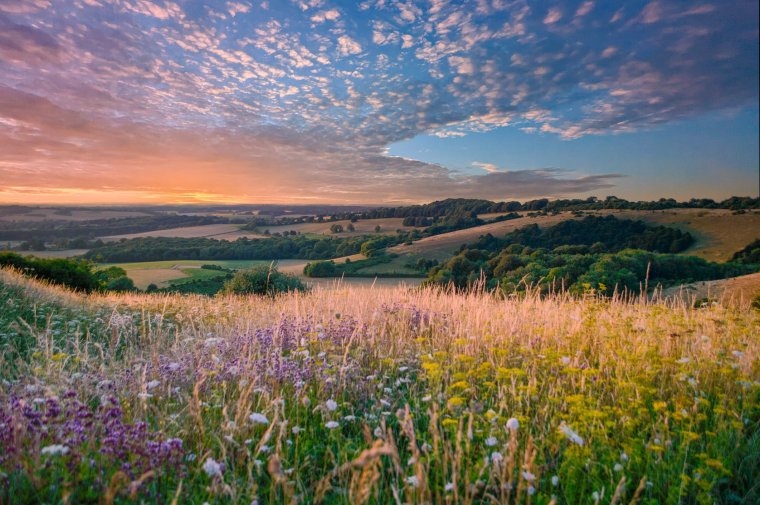
23. Use your holiday
Some employers may allow you to carry a couple of days over to the following year, but will there be time to use them in 2025? And those who squeeze in weeks of untaken leave in December are unlikely to make the most of it.
Plan out your time off in 2024 and you could incorporate bank holidays as well as allowing yourself plenty of time to find the cheapest destinations, flights and stays before demand begins to push up prices.
24. Head east
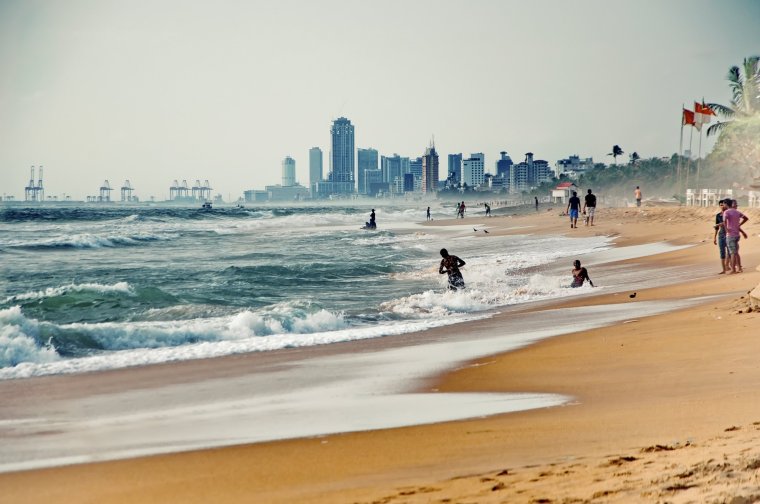
Asian destinations where living costs are cheap compared to the UK can break the budget once you factor in pricey plane tickets. However, according to data from Flight Centre, eastbound air fares from the UK were down by 10 per cent year-on-year in October.
Sri Lanka has climbed 17 places among Flight Centre’s most popular destinations and its capital, Colombo, is among the best value places to visit, based on research by Post Office Travel Money. Hoi An in Vietnam also featured among the cheapest options in the annual Holiday Money Report, as did the capital of the Thai island of Phuket.
